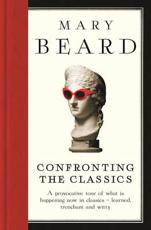Brief Note and New Books
Monday, September 30th, 2013[by Mark Safranski, a.k.a. “zen“]
Working on a number of things, top priority among which is a cross-post for Nuclear Diner about the Myhrvold Report that Cheryl Rofer decisively shredded here last week. Cheryl and I have done some point-counterpoint and blogging round tables together in the past but, this time I have been handicapped in my response by being largely in agreement 🙂 I will try to hit the report from a somewhat different angle but like Cheryl I have some serious reservations.
Picked up a few new reads this weekend that should be interesting to the readership:


Confronting the Classics by Mary Beard
Mary Beard is a British celebrity classicist from King’s College, an eminent figure in the field and extremely active in the social media realm where her blog, A Don’s Life and her twitter account are highly popular. She seems somewhat leftish anti-American in her politics, but does not appear to be under what Popper termed “the spell of Plato” and regards Socrates as a radical and subversive ( which he was, though not quite in the modern sense of those words). Here is a sample of Beard’s prose:
Marcus Tullius Cicero was murdered on 7 December 43 BC: Rome’s most famous orator, off-and-on defender of Republican liberty and thundering critic of autocracy. He was finally hunted down by lackeys of Mark Antony, a member of Rome’s ruling junta and principal victim of Cicero’s dazzling swansong of invective: more than a dozen speeches called the Philippics, after Demosthenes almost equally nasty attacks on Philip of Macedon, three centuries earlier.
Cicero of course shared the fate of Demosthenes, dying less ignobly than Pompey but much less impressively to his fellow Romans than did the fanatical Cato. As a result, Cato has an equally uncompromising libertarian think tank named in his honor while America’s gift to Cicero’s posterity is only a mafia-infested Chicago suburb.
Scahill is much better known figure than Beard. I frankly disagree in principle with his take on drones and al Qaida targets – unless they are hors d’ combat or attempting to surrender, as combatants *all* AQ members are legitimate military targets under the laws of war, period – but I wanted to see what his argument was at it’s most expansive and fully documented. Should be an interesting read.




